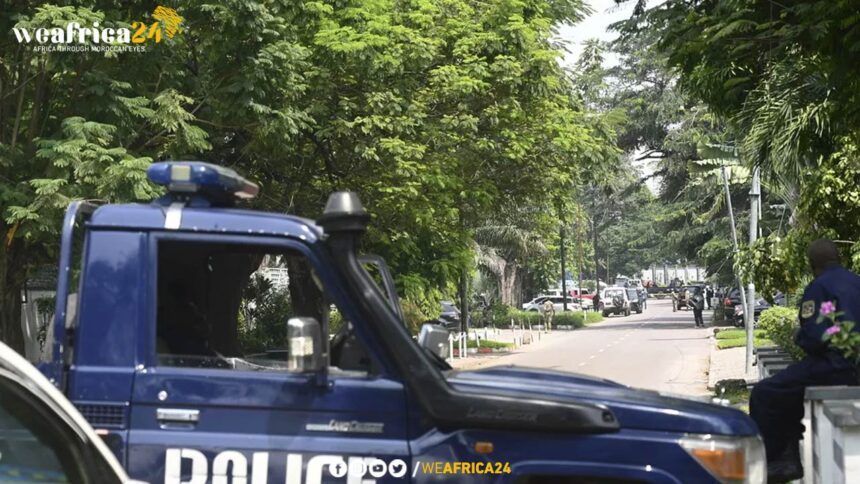Three Americans participated in a daring weekend attack on the presidential palace in the Democratic Republic of Congo (DRC), forming an unlikely group led by eccentric opposition figure Christian Malanga. Known for his ventures in gold mining and used cars, Malanga convinced his Utah-born son to join the ill-fated coup, according to officials.
The assault resulted in the deaths of six individuals, including Malanga, and the arrest of dozens, among them the three Americans. The incident also included an attack on the residence of a close ally of President Felix Tshisekedi, as confirmed by Brig. Gen. Sylvain Ekenge, the spokesperson for the Congolese army.
Malanga was reportedly killed in a shootout with presidential guards early Sunday. “The situation is under control,” Ekenge stated.
Authorities are still piecing together how Marcel Malanga, Christian’s 21-year-old son, transitioned from playing high school football to allegedly attempting to overthrow the leader of one of Africa’s largest nations.
“My son is innocent,” Marcel’s mother, Brittney Sawyer, wrote in an email to The Associated Press, declining to provide further details.
Sawyer frequently shared family photos on social media, including a December image of Marcel with his siblings in matching Christmas pajamas. In 2020, she posted pictures of Marcel lifting weights and dancing during the COVID-19 lockdown.
In a Facebook post on Monday, Sawyer expressed her frustration, stating that her son had merely followed his father. “This was an innocent boy following his father. I’m so tired of all the videos being posted and sent to me. God will take care of you people!”
One video circulating on social media shows Marcel next to a bloodied white man, both covered in dust and surrounded by Congolese soldiers. Marcel appears frightened with his hands raised.
This image starkly contrasts with the persona Marcel had been building on social media, where he was seen posing with stacks of dollar bills and discussing women.
Christian Malanga had presented himself on his website as a refugee who flourished after settling in the U.S. with his family in the 1990s. He claimed leadership of a Congolese opposition party and interactions with high-level officials in Washington and the Vatican. He also portrayed himself as a devoted husband and father of eight.
However, court records and interviews reveal a different story. In 2001, Malanga was convicted in Utah for assault with a firearm, resulting in a 30-day jail sentence and three years of probation. That same year, he faced charges of domestic violence assault and battery, although these were later dismissed. In 2004, he was charged with domestic violence with a threat of using a dangerous weapon, but again, the charges were dismissed. Since 2004, Malanga had several cases related to custody and child support disputes.
On Monday, relatives gathered at the West Jordan home of Malanga’s mother, Chantal Malanga, to mourn. Friends brought food and offered condolences. Sydney, a cousin who answered the door, described the family as “heartbroken” and “raw” after learning of his death, and mentioned plans for a possible funeral in Utah.
Christian Malanga described himself as the organizer of the United Congolese Party, aimed at mobilizing émigrés against the “current Congolese dictatorship government regime.” He also claimed to be the president of the “New Zaire” government in exile, with a manifesto outlining plans for business opportunities and security service reforms in Congo.
Photos on Facebook and his website show Malanga meeting U.S. political figures, including former Utah Rep. Rob Bishop and New York Rep. Peter King. Bishop told AP he did not recall the meeting or when the photo was taken, and King could not be reached for comment.
Dino Mahtani, an independent researcher on African issues, first heard of Malanga in 2018 while working as a political adviser to the United Nations in Congo. Congolese authorities suspected Malanga of being involved in a plot to kill then-President Joseph Kabila. Mahtani never met Malanga but speculated that he was obsessed with capturing power in Congo and may have been set up or betrayed during the weekend attack.
This dramatic episode underscores the volatile political climate in the DRC and raises questions about the involvement of foreign nationals in the country’s internal conflicts.







